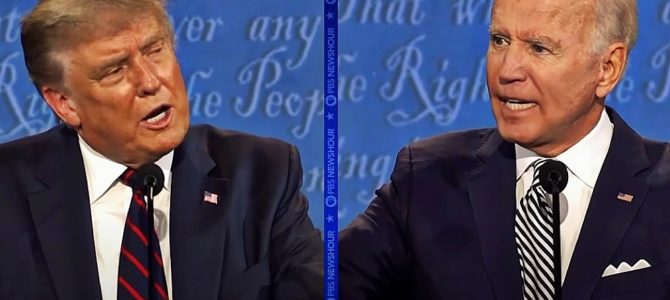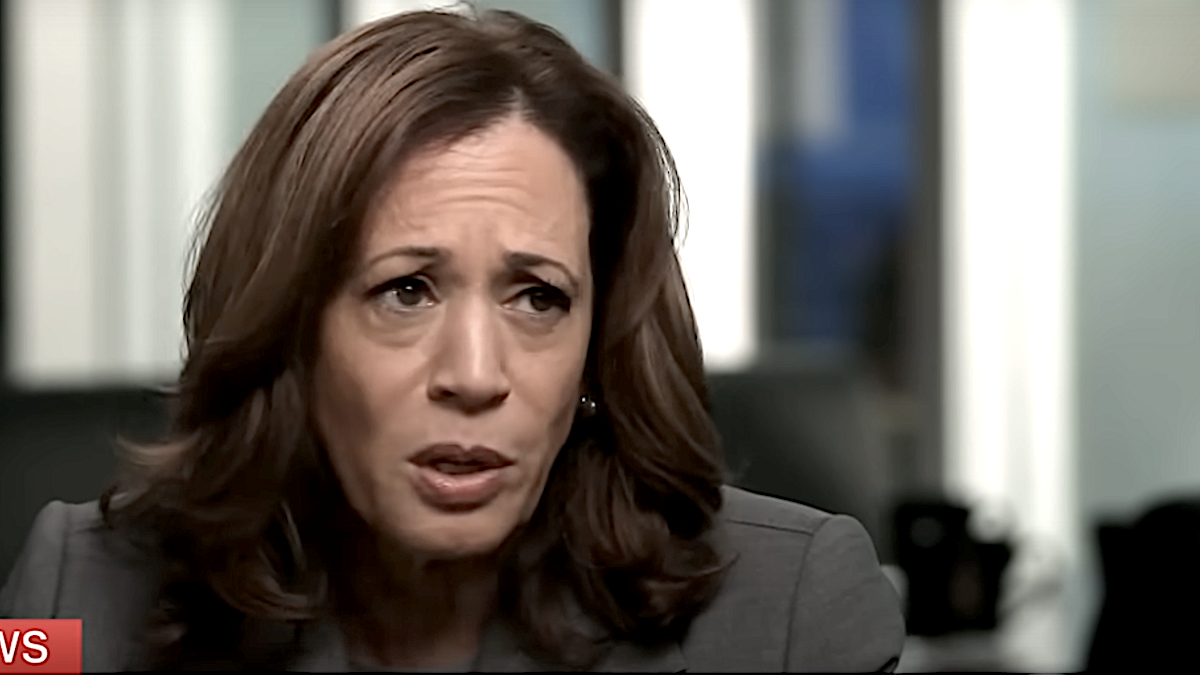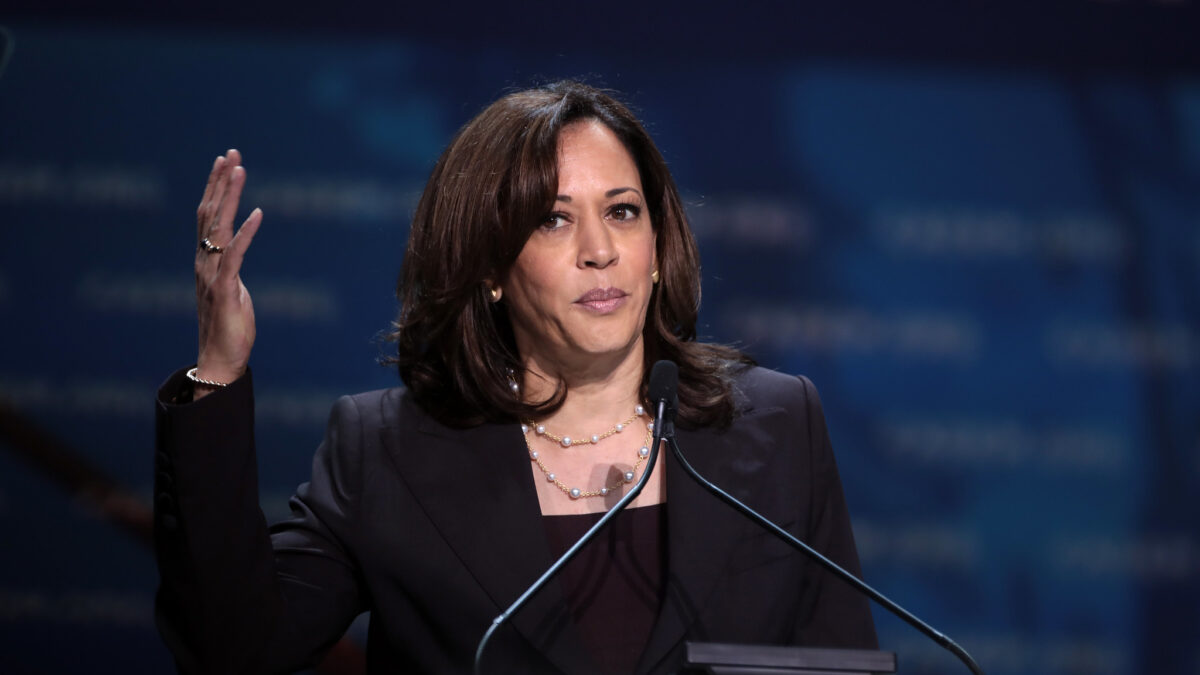
Of the many things this nation must reaffirm, it’s that words matter and promises should be kept. If former Vice President Joe Biden and President Donald Trump stick to the commitments their campaigns agreed to months ago, Americans will have the option to sit through two more presidential debates this year.
As soon as is possible, however, the Commission on Presidential Debates must ensure a return to an informative, meaningful, and respectful discussion between the candidates seeking to lead the free world. If they can’t do that, then after this election, the debates should be placed on hiatus.
The American people deserve better than the mind-numbing, oratorical anarchy that was on display Tuesday night in Cleveland. The first presidential debate between Biden and Trump featured the sitting president of the United States disrespectfully called a “clown” and told to “shut up.” It featured bumblings, incessant interruptions, misstatements, and flippant falsehoods that remained largely unscrutinized by moderator Chris Wallace, who was lampooned by the left, the right, and even many on his own network for failing to maintain control.
Commentators from various news outlets called the event “chaotic,” “tumultuous,” and “the worst presidential debate in living memory.” The trend of debates becoming nigh unwatchable dates back at least the 2016 GOP primary and worsened during the most recent Democratic Party primary season. Yet the Biden vs. Trump fiasco was an entirely different level of awful. Something needs to be done to make sure we never have to witness something so destructive and embarrassing again.
To wit, the overwhelmingly negative response to Tuesday’s debate has reportedly prompted the commission to acknowledge it needs to add “additional structure” to the format “to ensure a more orderly discussion.”
While Americans wait to see what they have in store, there’s a simple solution: Mute the microphone of any candidate not officially on the clock. Mics should only be un-muted only during a candidate’s designated time to speak. This isn’t complicated.
To preserve impartiality and allow them to focus on the job at hand, this muting power should not be held by moderators but by the sound booth. Ideally, it would kick in automatically, protecting candidates from bias.
Rebuttals to two-minute answers should be limited to an uninterrupted 60 seconds. Visible to both the candidates and the audience, a simple green/red graphic would note who has the floor. During the final ten seconds, a subtle visual countdown — akin to an NBA shot clock — would allow viewers to keep everyone honest.
I’ve seen amateur high school students manage more than 16 audio channels of active voices on giant sound mixers during massive stage-filling productions of “The Sound of Music,” “Grease,” and “Beauty and the Beast.” So, if for some reason automation can’t be implemented, then surely, for an event of the stature of a presidential debate, the commission can scrounge up a personal sound techie for each candidate whose sole job is to manage one channel of audio.
But what of entertainment value or spontaneity? Well, aside from the fact that the purpose of presidential debates isn’t to be humorous or unexpected, it’s not at all certain a mic-monitored setup would lead to a boring or stiff debate. Experience and history should lay any such concerns to rest.
Almost all of the most memorable and illuminating presidential debate moments of the past came during candidates using their appropriately allotted speaking time. Whether Michael Dukakis’s technocratic self-destruction, Ronald Reagan’s one-liners against Jimmy Carter and Walter Mondale, Bentsen’s deflation of Dan Quayle, or Gerald Ford’s gaffe regarding Soviet domination in Eastern Europe, none of these moments came as interruptions or interjections into the opposing candidate’s approved time to speak.
If a candidate on the clock issues blatant falsehoods or inaccurate statements, that’s what paper and pens are provided for. Candidates should be capable of taking notes and waiting the less than two minutes to correct the record and urge viewers to look up the validity of a questionable comment.
Ben Domenech and David Harsanyi make equally solid arguments for longer answers or freer cross-examinations between candidates. For at least the last two election cycles, however, candidates from both parties have proven themselves unwilling to let their opponents finish complete sentences, let alone entire arguments. Without an iron-clad enforcement mechanism to prevent interruptions that make it impossible for viewers to understand what’s being said, such scenarios risk the same uninformative, unfollowable chaos — just in extended segments.
We’ve likely moved long past the required decorum and attention spans required for a three-hour Lincoln-Douglas style debate, with candidates speaking in 60-minute statements, followed by 90-minute rebuttals, and concluding with a 30-minute rejoinder from the first candidate. But there is an achievable sweet-spot between the Shakespearean-level oratorical quality of the Lincoln-Douglas debate of 1858 and the incoherent and insulting mess 73 million Americans just sat through.
Americans deserve better, and the world needs to see a better representation of America. Major political debates in America used to be events the whole family could watch together. Now, subjecting a teenager to viewing a presidential debate amounts to some degree of emotional abuse.
Tragically, as early polling indicates, what should be an event that galvanizes healthy discussions and brings curious young minds into a fruitful investigation of political philosophy has repulsed many Americans. A CBS News post-debate poll found a supermajority of 69 percent of debate watchers were “annoyed”; 83 percent felt the tone of the debate was “negative.”
More than 90 million eligible voters didn’t vote in the 2016 presidential election. We need debates and similar forums to energize the public about our republic and to provide further incentive for undecided or hesitant Americans to become politically engaged. Instead, they’re being turned off, possibly forever.
Debates aren’t supposed to be WWE-style rumbles or Dean Martin celebrity roasts. Far from it. Debates should better inform us of a candidate’s positions on issues, show us a candidate’s ability to think extemporaneously, and reveal character. Debates don’t exist to amuse us. But make no mistake about it, there was nothing at all amusing about the political travesty and wasted opportunity we witnessed Tuesday night.









